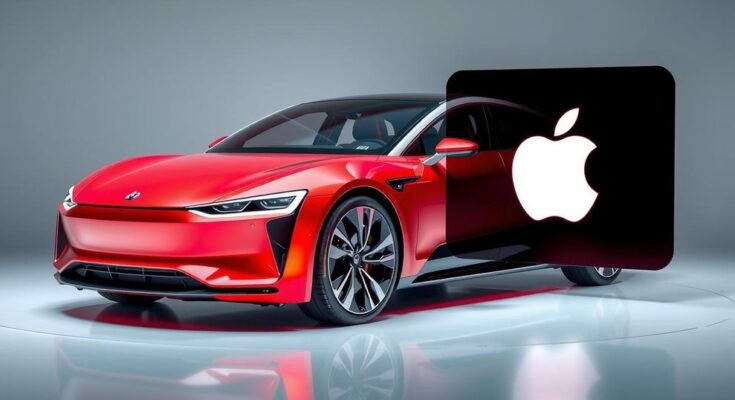Eric Bach, Chief Engineer at Lucid Motors, discusses the rising influence of Chinese EV manufacturers, particularly highlighting the Xiaomi SU7. He notes significant advantages such as digital capabilities and craftsmanship that Chinese automakers have developed, while emphasizing the need for Lucid to improve its production and performance in anticipation of future competition.
In a recent interview, Eric Bach, Chief Engineer at Lucid Motors, shared insights regarding the Chinese electric vehicle (EV) market, notably emphasizing the significance of the Xiaomi SU7. Historically, Chinese automotive brands were viewed as inferior, heavily dependent on foreign expertise. However, with firms like BYD and Geely taking a leading role in the global market, there is a palpable shift. Compared to their earlier reputation, current Chinese EVs are recognized for their impressive affordability, quality, and rapid development cycles.
Bach acknowledged that Lucid has been actively dissecting Chinese EVs to glean valuable lessons from these competitors. He highlighted several advantages that Chinese manufacturers possess, including enhanced digital capabilities, remarkable production speed, and robust government incentives fostering competitive growth. “They’ve got core strengths in the digital realm,” stated Bach, underlining that failing to recognize these attributes would be foolish.
Lucid’s exploration included acquiring models from Nio, Zeekr, and the Xiaomi SU7. Bach noted a remarkable standard of craftsmanship in the designs and build quality of these vehicles, which has often been underestimated. He praised the Xiaomi SU7 for its design sophistication, likening its appeal to the elusive ‘Apple of cars.’ This model has garnered attention from industry leaders such as Ford’s CEO Jim Farley, further asserting its market credibility.
Moreover, Bach cited advancements in digital offerings among Chinese automakers, particularly in the realms of infotainment and user experience, as a significant point of competition. Lucid’s upcoming Gravity SUV aims to enhance its digital interface, keeping pace with innovative trends set by Chinese counterparts. As Bach poignantly observed, “[Chinese firms] have… more people that are programming at… more hours per week, seemingly, and therefore the output is really, really high.”
Despite these observations, he recognized a notable gap in driving dynamics and performance where Lucid excels. Bach indicated that while competition from China is currently mitigated by tariffs and regulatory challenges in the U.S., there is a clear imperative for Lucid to elevate its production capabilities to withstand future competition.
The automotive industry is witnessing dynamic shifts, particularly with the rise of Chinese electric vehicle (EV) manufacturers like BYD and Geely. Traditionally, Chinese car companies struggled to establish a strong foothold against established automotive giants, but today they lead in EV exports and competitive pricing. With innovations in design, performance, and technology, Chinese brands are gaining respect and market share internationally, prompting companies like Lucid Motors to adapt and learn from these emerging competitors. This context is crucial in understanding Lucid’s strategic approach to the evolving automotive landscape and their perspective on models like the Xiaomi SU7, which signify China’s growing influence in the EV market.
In summary, Eric Bach’s insights reflect a profound respect for the advancements made by Chinese automakers in electric vehicle manufacturing. The rapid rise of companies like Xiaomi, particularly with models like the SU7, exemplifies the shifting dynamics in the global automotive sector. Lucid Motors is actively analyzing these competitors to enhance their offerings and maintain their edge in craftsmanship and performance. Moving forward, adapting to the strengths of the Chinese EV market will be vital for Lucid’s success and resilience.
Original Source: insideevs.com




